Herzl's Switzerland Plan
By Ora, Courtesy of The Muqata.
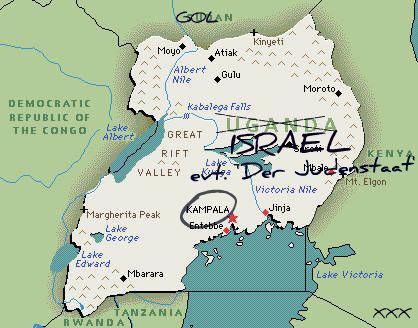
Theodore Herzl founded the Zionist political movement in the late 19th century, aimed at creating a safe haven for the Jewish people. Besides Israel, he considered various options to serve as the Jewish national homeland: First Argentina, and then later on, Uganda.
Herzl thought that the situation was so dire, that (even temporarily) Jews would be willing to forego Israel as their homeland. In doing so, however, he showed ignorance of the eternal and ongoing bond of Jews to the Land of Israel. Israel was not just a dream, it was and is the core and essence of Judaism.
But Herzl also didn't realize how much Jews were connected to the Hebrew language. In his book, Der Judenstaat (The Jewish State), published in 1896, he suggested the Switzerland plan:
It might be suggested that our want of a common current language would present difficulties. We cannot converse with one another in Hebrew. Who amongst us has a sufficient acquaintance with Hebrew to ask for a railway ticket in that language? Such a thing cannot be done. Yet the difficulty is very easily circumvented. Every man can preserve the language in which his thoughts are at home. Switzerland affords a conclusive proof of the possibility of a federation of tongues. We shall remain in the new country what we now are here, and we shall never cease to cherish with sadness the memory of the native land out of which we have been driven.
We shall give up using those miserable stunted jargons, those Ghetto languages which we still employ, for these were the stealthy tongues of prisoners. Our national teachers will give due attention to this matter; and the language which proves itself to be of greatest utility for general intercourse will be adopted without compulsion as our national tongue. Our community of race is peculiar and unique, for we are bound together only by the faith of our fathers.
Herzl did not realize that the Jewish nation is bound both by a common tongue (Hebrew) and by a common land (Israel).
But Herzl quickly realized his mistake. Michael Berkowitz, Der Judenstaat's Hebrew translator, wrote in his foreword 'to the Hebrew readers' that Herzl asked him to erase that section.
In a later edition of the book, he retells the tale:
When [Herzl] entered the Zionist circle and came to know the eastern Hovevei Zion group − their demands and aspirations and the state of their Hebrew education − he realized that there are among us many readers of Hebrew, not only of books but also of newspapers. And when he gave me permission to translate his book into Hebrew, he found in this very fact − that Hebrew readers would read his book − proof that this language can and will be rejuvenated as the national language and that it must be the sole dominant language in the Jewish state. And then he asked me to erase from my translation the entire chapter which talks about the 'language of the land'. But, for the literary truth, I chose to present the book with its original content and format, since even the German original didn't change in the newer editions, though the author had already changed his mind as to some details.
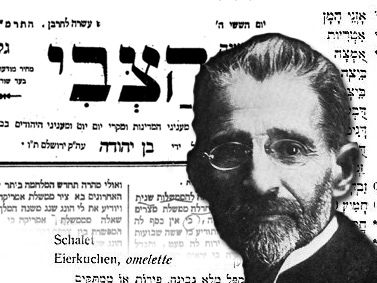
Eliezer Ben Yehuda with his newspaper, Hatzvi
The 'details' in question were: Israel as the national homeland and Hebrew as the national tongue.
Herzl wrote his book in 1896, more than 15 years after Eliezer Ben-Yehuda launched his 'revival of Hebrew', but apparently nobody bothered to inform Herzl. Herzl did not realize that Jews had been reading newspapers in Hebrew even before he was born. He did not know that Jews met and conversed in Hebrew. He was completely unaware that Hebrew was still living and breathing, just as he was unaware that the Land of Israel was still living and breathing.
And so Berkowitz translated the book, including the paragraph about 'nobody being able to order a train-ticket in Hebrew', in Hebrew.
הן לא נוכל היום לדבר עברית, כי מאתנו יש לאל ידו לדרוש פתקא למסעו במסלת הברזל בשפת עבר? אבל גם הדבר הזה פשוט הוא מאד.
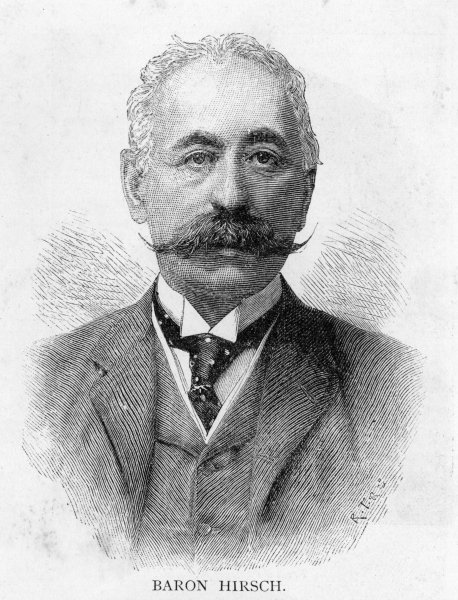
It's interesting to note that though the modern words for 'ticket' and 'train' (כרטיס and רכבת) had already been invented many years previously - 'ticket' by Yehuda Leib Gordon and 'train' by Eliezer Ben-Yehuda - Berkowitz used the more antiquated words.
In fact, those 'new' words weren't really needed. Hebrew was a living language, and Hebrew speakers and writers could communicate quite well about the most mundane matters even before Ben-Yehuda appeared. It is true that we were missing some vocabulary, but many newly coined words replaced existing words . For example, using one-word nouns instead of compound nouns.
Though Berkowitz preferred to retain the language issue in the Hebrew version of Der Judenstaat, he published a letter in the most popular Hebrew-language newspaper of the time, Hamagid, informing readers that Herzl had realized his mistake.
Berkowitz later served as Herzl’s Hebrew-language secretary. Herzl needed to know how the Zionist movement was portrayed in the Hebrew press, and needed somebody to assist him answering all the Hebrew letters he received...
Read More on The Muqata.

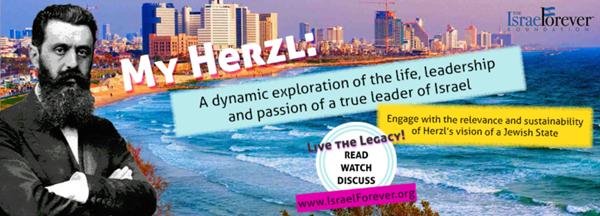
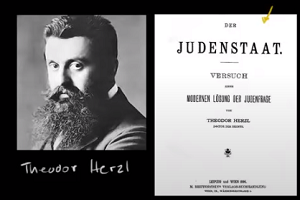
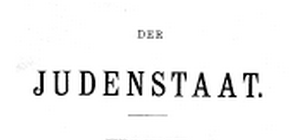
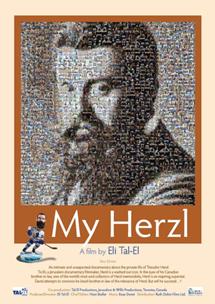
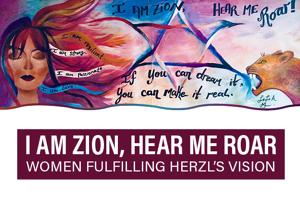



Leave a Comment on Israel Forever